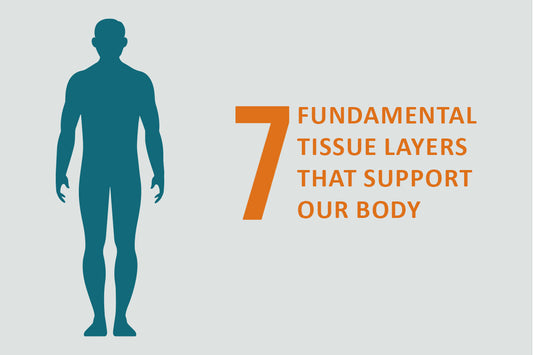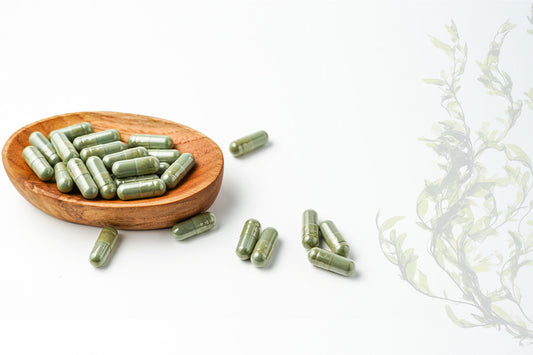Vitamins play pivotal roles in various aspects of well-being. From boosting energy levels to supporting reproductive health, these nutrients ensure that the body functions at its best. This blog explores the top six vitamins that are particularly beneficial for women, discussing their health benefits and the best sources to include in your diet.
-
Vitamin B9 (Folic Acid)
Folic acid, or folate, is a crucial vitamin for women, particularly those planning to become pregnant or who are already pregnant. It is essential for proper brain development in fetus and helps prevent a range of birth defects, especially those related to the brain and spinal cord. Beyond reproductive health, folate is key in forming red blood cells and helps in preventing anemia. Natural sources include leafy greens, citrus fruits, beans, and fortified products like cereals and breads. The recommended daily intake varies, but for women of childbearing age, 400-600 micrograms per day is advised, with higher amounts during pregnancy.
-
Vitamin D
Vitamin D is critical for bone health, as it facilitates calcium absorption in the gut. Women, particularly those over 50 or post-menopausal, need vitamin D to help prevent bone density loss and conditions such as osteoporosis. Additionally, vitamin D boosts immune function and may protect against autoimmune diseases and certain types of cancer. Sunlight is a primary source, but in colder climates or for those with limited sun exposure, fortified foods and Vitamin D supplements can help. Fatty fish like salmon, fortified dairy products, and egg yolks are also good sources. The general recommendation is 600-800 IU per day, depending on age and pregnancy status.
-
Vitamin B12
Vitamin B12 is vital for neurological functions and the production of DNA and red blood cells. It is particularly important for pregnant and breastfeeding women, as it supports the neurological development of the fetus and newborn. Vitamin B12 is found naturally in animal products such as meats, fish, poultry, dairy, and eggs. Vegetarians and vegans often need to turn to fortified foods or supplements to meet their needs. The average adult woman should aim for about 2.4 micrograms per day.
-
Vitamin A
Vitamin A is essential for vision, immune system function, and reproductive health. It also helps the heart, lungs, kidneys, and other organs work properly. Women can benefit from vitamin A to maintain healthy skin and eyesight. Sources of Vitamin A include both animal products (like dairy, fish, and meat) and plant-based carotenoids, which are found in colorful fruits and vegetables such as carrots, sweet potatoes, and kale. The recommended daily intake for adult women is 700 micrograms of retinol activity equivalents (RAE).
-
Vitamin C
Vitamin C is renowned for its immune-boosting effects but also plays a vital role in the growth and repair of tissues throughout the body. It assists in the production of collagen, aids in the absorption of iron, and works as a potent antioxidant to fight against free radicals. Women can enhance their vitamin C intake by consuming vitamin-C supplements or a variety of fruits and vegetables like oranges, kiwis, strawberries, bell peppers, and broccoli. The recommended daily intake for adult women is 75 mg, which can be easily achieved through diet alone.
-
Vitamin E
As a key antioxidant, Vitamin E protects cell membranes from damage and may help prevent chronic diseases. It’s also important for skin health, immune function, and the prevention of inflammation. Vitamin E-rich foods include nuts, seeds, spinach, and vegetable oils. For women, the recommended daily intake is 15 mg or 22.4 IU of natural alpha-tocopherol. Ensuring adequate intake from the diet can help maintain heart health and skin vitality.
Tips for Incorporating These Vitamins into Your Diet
While supplements are available, the best way to meet your nutritional needs is through a varied and balanced diet. Here are some tips to help you incorporate these essential vitamins into your daily life:
Plan Balanced Meals: Include a variety of fruits, vegetables, whole grains, and protein sources in your meals to cover a spectrum of vitamins.
Check Labels: Opt for fortified foods when possible, especially if you follow a vegetarian or vegan diet.
Consider Supplements: If you have dietary restrictions, are pregnant, or have specific health conditions, supplements may be necessary. Consult with a healthcare provider to tailor the supplementation to your needs.
Seasonal Variations: In winter or less sunny locations, vitamin D supplementation might be more important due to reduced sunlight exposure.
By understanding the roles these top vitamins play in a woman’s health, you can better manage your dietary choices and overall wellness strategy. Remember, each stage of a woman’s life might call for different nutritional focuses, so stay informed and adapt.






